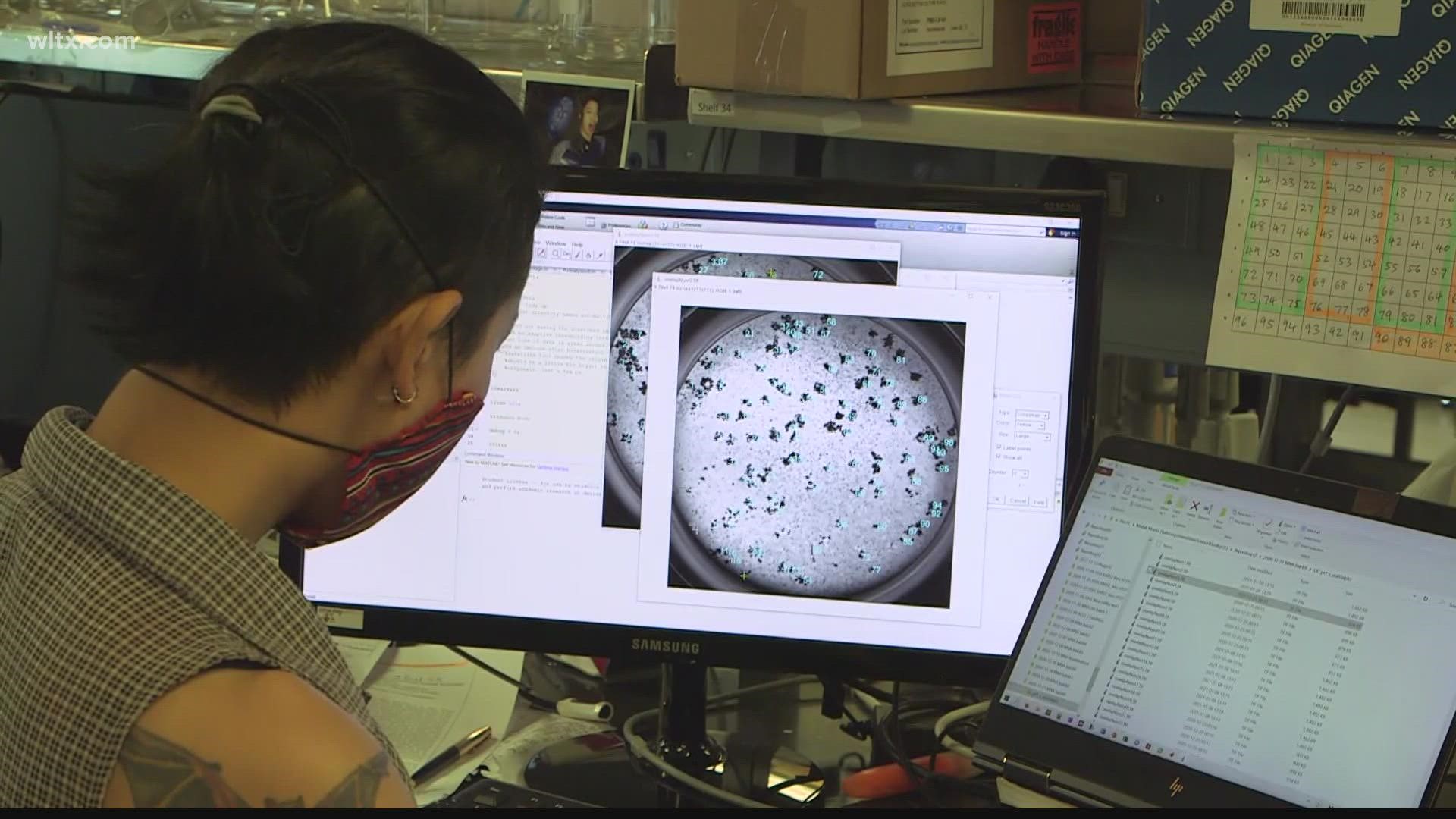COLUMBIA, S.C. — Health experts are now estimating about 73% of the nation is now immune to the omicron variant. So, is that enough to have herd immunity?
The omicron variant that saw cases hit record levels during the winter also bolstered our defenses, leaving enough protection against the coronavirus that future spikes will likely require much less — if any — dramatic disruption to society.
About half of eligible Americans have received booster shots.
There have been nearly 80 million confirmed infections overall and many more infections have never been reported.
One influential model uses those factors and others to estimate that 73% of Americans are, for now, immune to omicron, the dominant variant, and that could rise to 80% by mid-March.
However, epidemiologist Dr. Anthony Alberg from the University of South Carolina says we aren't at herd immunity yet. He says for the unvaccinated, there is still a risk of getting the virus.
Dr. Alberg says to reach herd immunity, more people need to get vaccinated to prevent new COVID-19 strains from developing.
RELATED: Yes, there were more COVID-19 deaths in two weeks in January than flu deaths in the past three years
"We need to get to a higher percentage to get to herd immunity. So, we would need to get to 85% or higher to really achieve herd immunity, maybe 90% would be more accurate," Dr. Alberg said.
The coronavirus — the current variant or future ones that are sure to pop up — remains a dangerous virus. It is still infecting more than 130,000 Americans and killing more than 2,000 every day, and tens of millions of people remain vulnerable.

